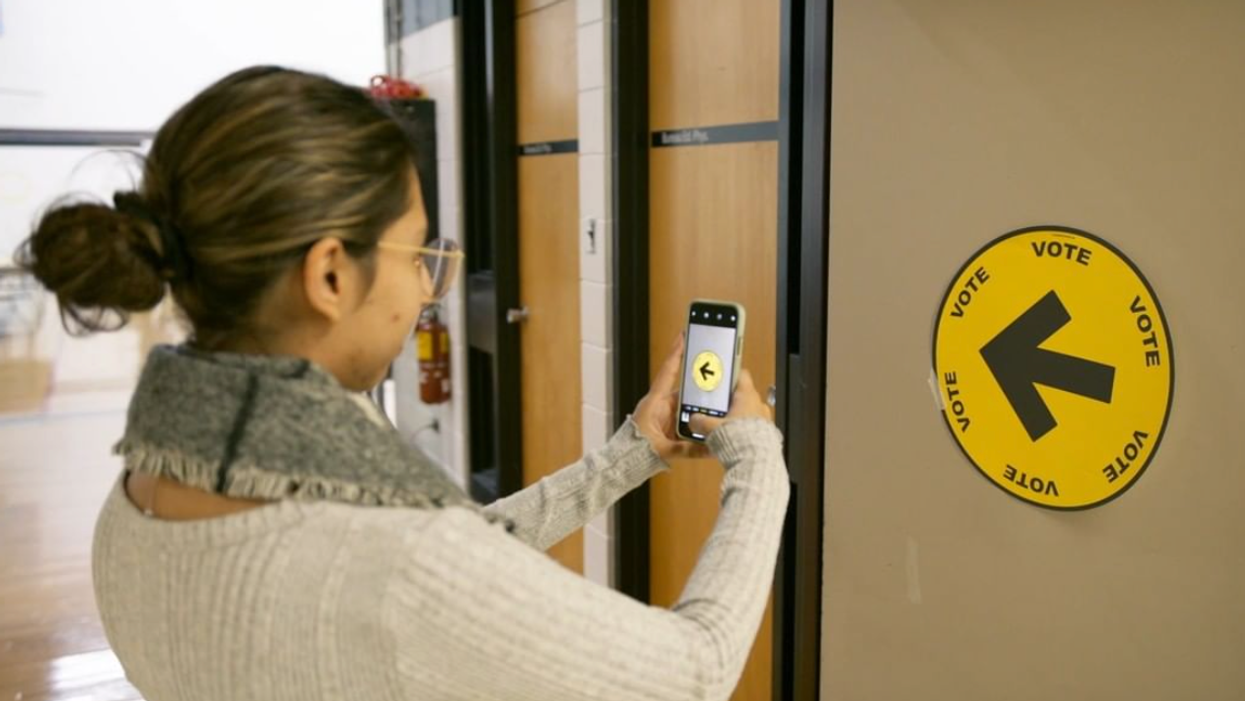
It's only nine days until Canadians across the country will get out and vote in the 2021 federal election, but there are a lot of complex issues and questions still out there about how the election will work.
Narcity took to Instagram and asked our readers what embarrassing questions about the election they had, in an effort to help answer them without making you admit something less-than-flattering to a friend.
In truth, the questions are great, and anybody might learn something by learning the answers to them.
How TF Do I Vote?
There are four different ways to vote, whether you want to do it in-person or via mail.
If you want to vote by mail, you can apply online or go into an Elections Canada office to request your special ballot voting kit. Once you have it, you fill out the ballot and send it back in the mail with the pre-addressed, pre-paid envelope that comes with the kit.
Applications for a mail ballot kit need to be completed by September 14 and your ballot needs to be delivered back to Elections Canada by election day, so don't delay if this is how you want to do it!
If you want to vote in person, you can either vote on an advanced voting day or on election day itself. The advanced voting days are September 10 to 13, and election day is September 20. In order to vote on the big day, you'll need to bring your voter information card to your assigned polling station in your neighbourhood and bring a piece of ID that proves your identity and address.
Finally, you can also head to an Elections Canada office and vote there before September 14.
Didn't We Just Have An Election?
Yep, we did. Canada's last federal election was in 2019, which means that while federal elections are usually four years apart, this one is only two years out from last time.
Justin Trudeau called what's known as a "snap election," which means that parliament is dissolved and all federal politicians have to start campaigning again.
Why Did Justin Trudeau Call An Election When He's Already In Charge?
Justin Trudeau explained why he called an election now, say is a "pivotal moment" in Canadian history — maybe the most pivotal since 1945 and the Second World War, he said.
"The decisions your government makes right now will define the future your kids and grandkids grow up in," he said in a press conference back in August. "So in this pivotal, consequential moment, who wouldn't want a say?"
According to Pauline Beange, a teacher at the University of Toronto who specializes in Canadian politics and political parties, his motives could also be partly influenced by the public.
"It seems likely that he is acting strategically based on polling and the fact that he would like to have a majority in the House of Commons," she told Narcity back when the election was called.
When Is Election Day?
Will Citizens Who Just Took Their Oath Be Eligible To Vote?
All Canadian citizens aged 18 and older are eligible to vote in the election, no matter when they became citizens. Citizenship Canada informs Elections Canada that new Canadians should be added to the voter roll, so once that happens, you're good to go.
Who's Even Running In This Election?
There are hundreds of people running in hundreds of ridings all across Canada, but there are six major parties that most Canadians will know about.
Those six major parties are the Liberal Party, Conservative Party, New Democratic Party (NDP), Green Party, Bloc Québécois and the People's Party of Canada (PPC).
All the info about these parties and their platforms is available in this Narcity article to help you figure out who you'd like to vote for.
Why Doesn't Canada Have Elections Just By Mail?
Despite the threat of COVID-19, in-person voting will still be an option for Canadians on September 20. However, there are some differences in what voting during a pandemic looks like.
For instance, polling stations will enforce physical distancing measures and provide face masks and single-use pencils to voters.
"Strict sanitation measures" will be in place for voters and volunteers at polling stations, according to Elections Canada, and commonly touched surfaces will be frequently sanitized in order to best protect the health and safety of Canadians exercising their right to vote on September 20.


0 Comments